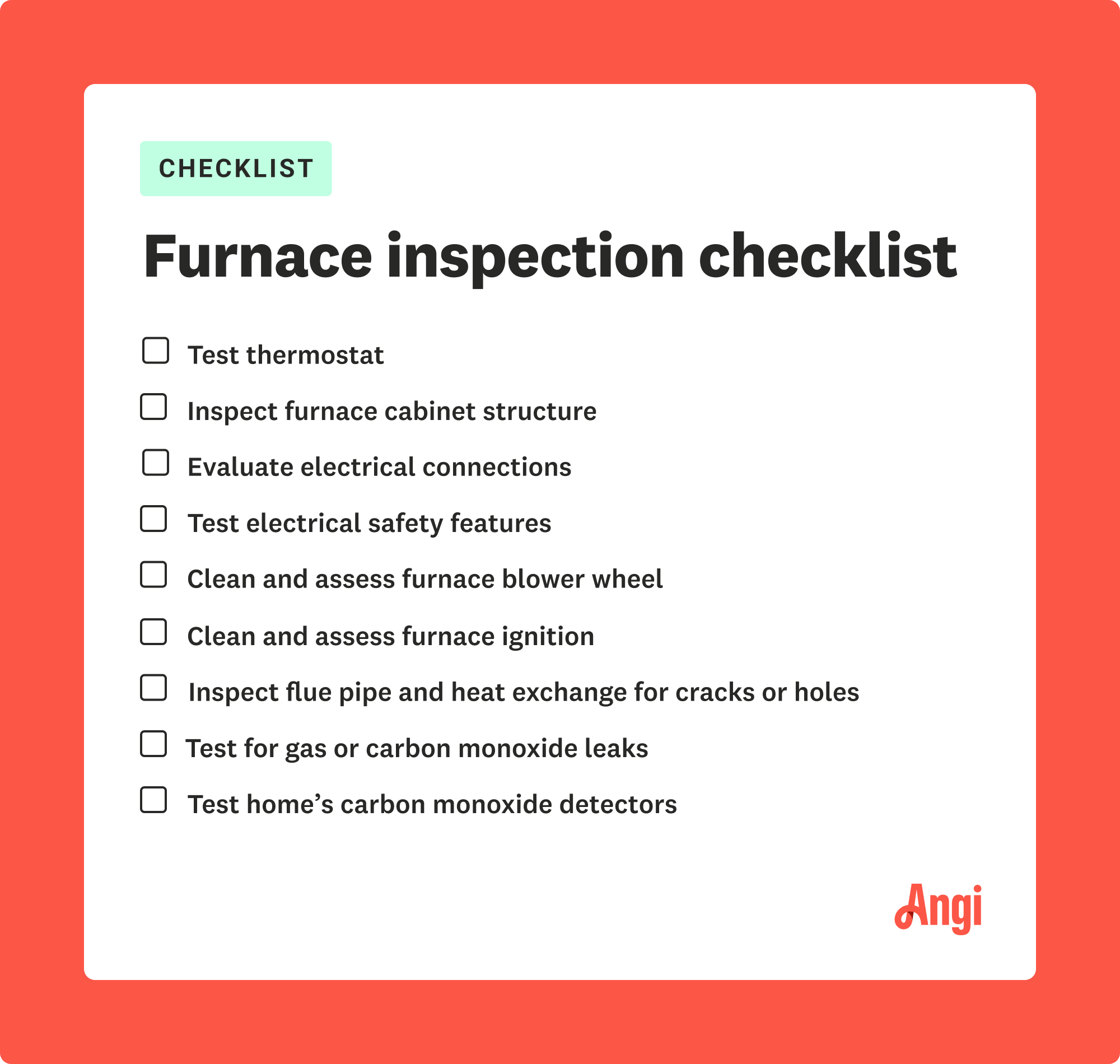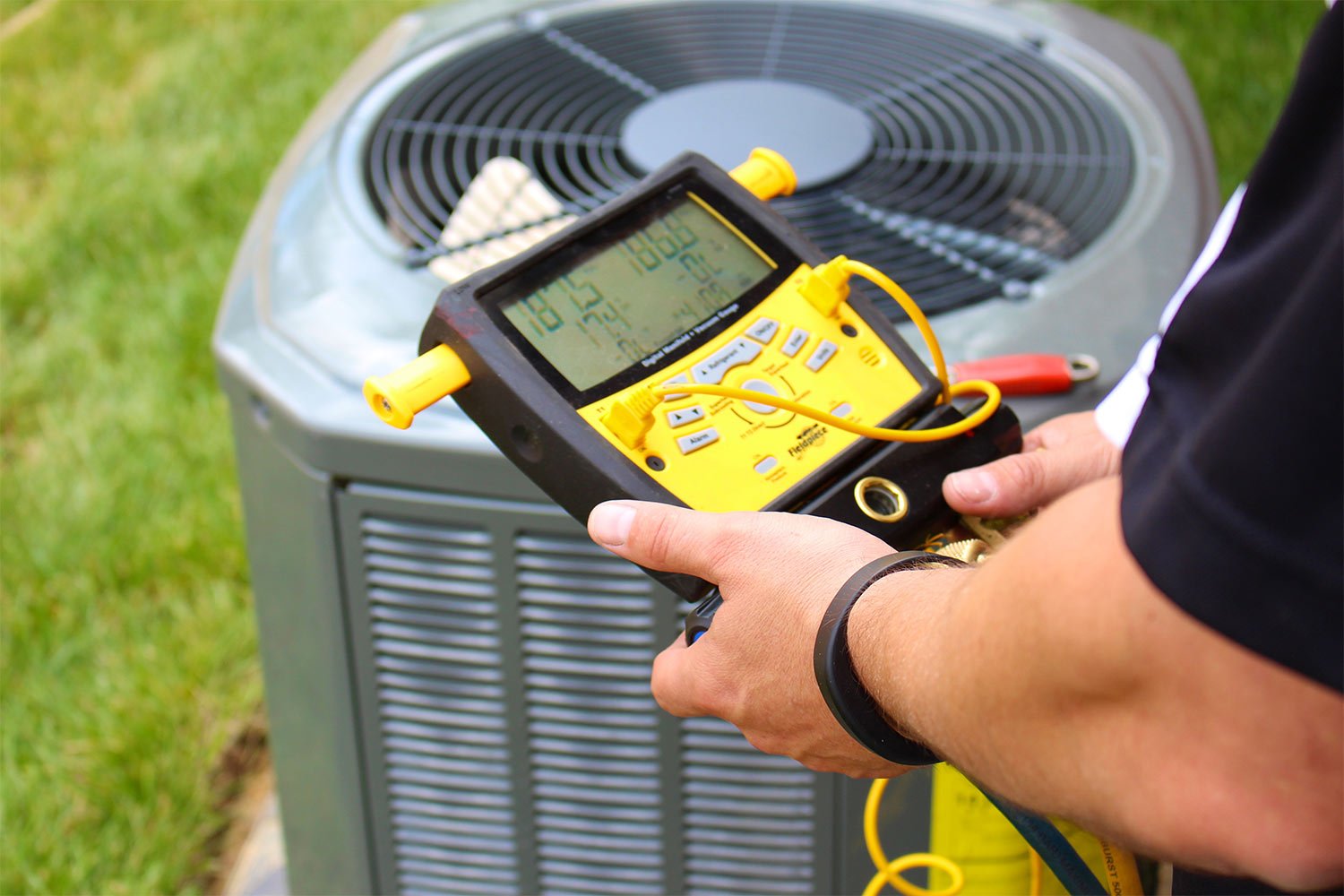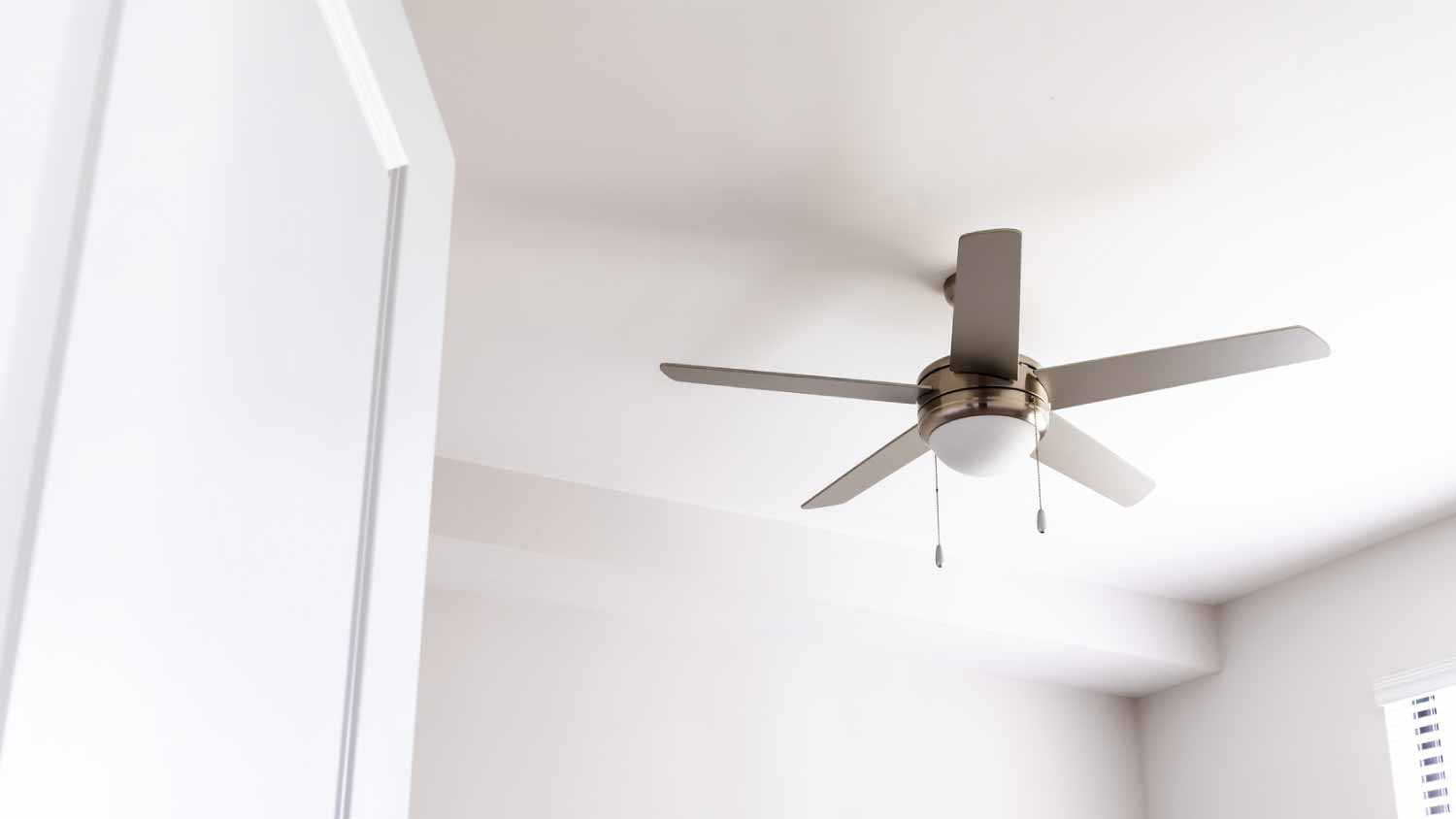HVAC System Inspections: Everything You Need to Know
Keep a cool head and add this inspection to your maintenance checklist


The average cost of an HVAC inspection is between $150 and $500.
Inspections take one to three hours to complete.
Technicians inspect the furnace, air conditioner, and air ducts.
Schedule HVAC inspections in the fall and spring to prepare your system for extreme weather.
Your HVAC system is the heart of your home. Similar to how your car needs oil changes, you need HVAC system inspections to keep this essential home feature running smoothly, too. Learn why it’s essential to call an HVAC company to inspect and service your system, as well as what to expect when they arrive.
Scheduling an HVAC inspection every six months is crucial for ensuring your system operates efficiently and safely, preventing unexpected breakdowns and costly repairs. Regular inspections can also extend the lifespan of your system, providing comfort and peace of mind throughout the year.
What Is an HVAC Inspection?
Before we define an HVAC inspection, it helps to know what HVAC is in the first place. The HVAC abbreviation stands for heating, ventilation, and air conditioning. It refers to all the components that maintain your home's air quality and keep it at a comfortable temperature year-round.
An HVAC inspection is a complete evaluation and test of all of your home's HVAC systems. As your local HVAC technician works through an HVAC inspection checklist, certified inspectors will check the basic function, condition, and cleanliness of each part of the system, testing safety mechanisms and determining the system's approximate age. Regular inspections can help ensure your HVAC system is running as smoothly and as efficiently as it should, as well as prevent it from breaking down unexpectedly.
Why It’s Important to Have Your HVAC Inspected
Regular HVAC inspection helps keep systems functioning properly and eliminates the surprise costs of malfunctioning HVAC system parts, electrical problems, and gas leaks.
Most HVAC systems come with warranties that mandate regular servicing. If you avoid or delay these required inspections, you could be violating that warranty. This scenario means you may have to pay out of pocket for costly repairs if something goes wrong with your system. An unserviced system also loses about 5% efficiency per year and reduces the system’s lifespan by 50%.
Home buyers should schedule a HVAC inspection on top of a standard home inspection before putting a down payment on the home. General inspectors are not required to have HVAC expertise or tools, so they may miss problems that a certified HVAC technician would spot.
What Does an Air Conditioning System Inspection Cover?
An air conditioner inspection covers all the parts of your AC system that keep it running, so your home stays cool in the summer. This includes the following components.

AC Evaporator Coils
The evaporator coils absorb heat and humidity from indoor air. They're sealed away and difficult to access, and problems like dust, dirt, mold, or icing can make the system less efficient. Your energy bills may rise and other components may wear down more quickly if the evaporator coils aren’t working at their best. Your HVAC inspector can access these coils to inspect, clean, and disinfect them if necessary.
Drain Pan
The drain pan sits under the evaporator coils and collects excess moisture. These pans are a common source of leaks and are susceptible to mold. Your inspector will assess the drain pan’s condition, looking for cracks or corrosion, and replace it if needed.
Condensate Drain Lines
Your AC's condensate lines drain excess water from the drain pan out of your home. If they get loose, clogged, or damaged, your system will leak. This situation can lead to costly water damage. An inspector will take a close look at all drain lines and clean them out if they’re clogged.
Outdoor Condenser Unit
The condenser unit is part of your AC system that sits outdoors next to your house. An inspector will visually inspect the unit and the fan and motor within for damage or wear.
Refrigerant Levels
Low refrigerant levels can cause many AC problems, ranging from freezing evaporator coils to blowing warm air. Your inspector will check your refrigerant level and refill it as needed.
Electrical
Your HVAC inspector will measure the voltage and amp draws of the motor capacitor, electrical connections, and wiring to ensure they’re running efficiently. Problems with your electrical can cause your AC unit to make strange noises, shut off on its own, blow warm air, or fail to turn on entirely.
What Does a Furnace Inspection Cover?
Furnace inspections are key to keeping your home safe, warm, and efficient all winter. Items on a professional technician’s furnace inspection checklist will include the following components.

Thermostat
One of the first things your inspector will assess is whether your thermostat is working properly. They will test the device and inspect the internal wiring while checking to see if the heat comes on and if the thermostat is reaching its set temperature.
Furnace Cabinet
The furnace cabinet houses all the internal furnace components. Your inspector will examine its structure to ensure it is sound and able to properly protect your system.
Electrical
Problems with your furnace's electrical components can be dangerous. Your inspector will evaluate all connections and test any safety features. One key feature that needs to be in good shape is the high-limit switch, which automatically turns off the furnace when it is overheating.
Furnace Blower
The furnace blower wheel circulates air through your HVAC system and into the ductwork. Your inspector will inspect the blower and perform a furnace cleaning if needed. A dirty or malfunctioning blower motor will struggle to keep up with your home's heating needs and raise your energy bills.
Ignition
Your inspector will look closely at the furnace ignition, which includes all of its burners and the flame sensor and ignitor. Dirt or debris buildup on these components can cause your furnace to blow cold air or heat your home inconsistently. They will also make sure the pilot light is working correctly.
Venting and Heat Exchanger
Your inspector will look at the condition of the flue pipe, which vents harmful gasses from your furnace out of your home. They will also inspect the heat exchangers, which release hot air into your home. Any holes or cracks in these parts can lead to poisonous carbon monoxide gas leaks.
Gas and Carbon Monoxide Testing
Your inspector will test your home for carbon monoxide and other hazardous gas leaks. They'll also test all of your home's carbon monoxide detectors to ensure you're protected in case a problem arises.
What Does an Air Duct Inspection Include?
Air duct inspection is the evaluation of an HVAC system's airflow. Your HVAC technician will inspect the exterior of all ducts for leaks and test air temperatures throughout the system.
Duct Leaks
Leaky air ducts can raise energy bills and prevent your HVAC system from reaching your set temperature. Some leaks send air into unconditioned spaces or suck unconditioned air in.
When inspecting for leaks, a technician will use special equipment to pressurize the duct system and measure the airflow through the ducts at pressure to detect the amount of air leaking out.
Air Flow Inspection
During an air flow inspection, an HVAC technician assesses the furnace filter, grilles, registers, and vents to make sure that air is flowing properly through each. They'll make adjustments and suggest repairs as needed if they detect problems.
Air Temperature Check
An air temperature check should happen on a warm day. Your HVAC technician will run the AC for 15 minutes, then measure and note the temperature on a vent. They'll repeat the process on vents throughout the home to check for differences in temperature, which may indicate problems.
Common HVAC Problems
Preventative maintenance can often help you avoid some of the most common heating and cooling system problems. By getting your HVAC inspected regularly by an HVAC technician, you can identify possible issues and fix them before they develop into bigger problems.
Items to keep on your HVAC inspection checklist include:
Poor or blocked airflow, leading to inefficient heating or cooling
Not reaching the desired temperature of heating or cooling
Low refrigerant levels in the air conditioning unit
Leaking drain lines or drip trays, possibly caused by frozen evaporator coils
Broken blower motor or the blower runs continuously
Furnace or air conditioning unit doesn’t turn on at all
Excessively high energy bills caused by system inefficiency
Ignition problems with the furnace, like dirty pilot or a blocked gas supply
Malfunctioning thermostat that fails to maintain the desired temperature
Strange noises caused by loose belts, connections, and other components
Dirty coils and filters, restricting airflow and reducing effectiveness
Leaking or dirty ductwork, affecting airflow through the HVAC system
When Should You Schedule an HVAC Inspection?

You should schedule your inspections six months apart, preferably in the fall and spring. It’s a good idea to get your furnace inspection planned in late summer because fall is a busy time of year for HVAC technicians. You should get air conditioning servicing and an inspection when it’s warm to ensure that your pro can check the refrigerant. On the flip side, you should get the heating system checked when it’s starting to get cool outside.
How Long Does an HVAC Inspection Take?
The typical HVAC inspection takes one to three hours, though it may take even longer depending on the size of the home and the number of systems being inspected. At the end of your HVAC inspection, your technician will provide you with a system health report. This report provides detailed information about every part that was inspected, including recommendations on how to maintain or service it in the future.
How Much Does an HVAC Inspection Cost?
A typical HVAC inspection costs between $150 and $500, though inspections for a particularly large home or one with multiple HVAC systems may cost up to $600.
This upfront cost can help save money in the long run because you'll avoid pricey HVAC repair costs if you catch problems early. Plus, a more efficient system means lower energy bills and a longer time span between replacements. Be sure to compare inspection fees across multiple contractors when calling HVAC inspection companies near you.
DIY HVAC Inspection vs. Calling a Pro
Inspecting your home's HVAC systems regularly can help you stay on top of potential issues. You can do a basic visual inspection of the indoor and outdoor units to check for leaks, loose electrical connections, unusual HVAC noises, clogged drains, dirty filters, dirt buildup, and gas leaks. Be sure to turn off your HVAC circuit breakers before touching any components.
While this sort of basic DIY inspection is safe to do, you'll still want to hire a professional HVAC technician annually to do a full inspection and any necessary maintenance. Knowing the correct HVAC terms can help you better communicate possible problems to the technician. HVAC systems are complex and can be dangerous to work on. Plus, a specialist can spot problems that may not be obvious to the untrained eye. It’s well worth the HVAC inspection cost to spot possible issues before they balloon into bigger problems.





- Furnace Repair
- Air Conditioning Repair
- HVAC Repairs
- Furnace Installation
- Wood & Pellet Stove Repair
- Dehumidifier & Humidifier Repair
- Heat Pump Companies
- Swamp Cooler Repair
- Wood Stove Services
- HVAC Companies
- Commercial A/C Repair
- Geothermal Installation
- Air Conditioning Installation
- Boiler Repair
- 24 Hour Furnace Repair
- Geothermal Repair
- Heat Pump Repair
- Humidifier Installation
- Thermostat Repair
- Thermostat Installation
- Nest Installation
- Heating & Cooling
- Heating Repair
- Furnace Cleaning
- Furnace Tune-Up
- HVAC Technicians
- Subcontractors
- Furnace Maintenance
- Plumbing & Heating Companies
- Wood Stove Inspection
- Mini Split Installation
- Wall Heater Repair
- Duct Installers
- The All-In-One HVAC Inspection Checklist
- What Does an HVAC Service Call Include? What to Expect
- HVAC Seasonal Maintenance: 11 Tips to Keep Your System Running Strong
- 11 Common HVAC Problems and How to Fix Them
- Did I Receive an Improper HVAC Installation?
- Who Do I Call to Check My HVAC System?
- How to Find and Hire the Best HVAC Technicians
- Problems With Your AC Unit? Here’s When To Call HVAC Repair
- 10 Fall HVAC Efficiency Tips to Save Money and Keep You Warm
- 10 HVAC Secrets That Can Help You Boost Efficiency and Save Money










